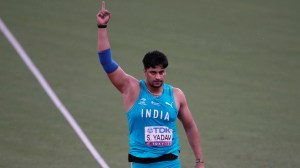Is dowry demand cruel?
NOVEMBER 25: Can anyone demand dowry without being cruel? No, says Justice V H Bhairavia of the Bombay High Court. And yet, ironically enou...

NOVEMBER 25: Can anyone demand dowry without being cruel? No, says Justice V H Bhairavia of the Bombay High Court. And yet, ironically enough, the judge has acquitted three persons, convicted under Dowry Prohibition Act, owing to lack of evidence of their cruelty towards the victim.
Handicapped due to lack of evidence, the judge even stated that he disbelieved that any exchange of dowry might have taken place, since the demand for dowry and an act of cruelty are inextricable.
Justice Bhairavia’s judgement comes in the wake of an appeal against a Sessions Court ruling, which has been termed “absurd and unsustainable” by the judge himself. As per the Sessions court ruling, Shreeram Kolapkar, with his mother and uncle, had forcibly taken dowry from his wife Anjali before and after their marriage. However, the lower court had not held them guilty of harassing the wife or abetting her suicide. Justice Bhairavia found it a contradictory case. “Once it is held that they are guilty of taking dowry, the aspect of cruelty automatically stands proved. And if cruelty and inducement to commit suicide is ruled out, the evidence of demand of dowry cannot be believed,” he added.
Justice Bhairavia’s ruling is important in the light of numerous acquittals of convicts due to technical reasons. It is a perfect example of loopholes in the lower court orders working to convicts’ advantage. More so in the case of appeals when the High Court is handicapped to go into the merits of the case handled by the lower court. In view of the technical hitch and limitations in the Sessions Court ruling, the judge has set the accused free. According to the Sessions judge, the convicts were not guilty of cruelty towards Anjali. However, he convicted them of taking dowry and sentenced them to a simple imprisonment of five and a half years each and a fine of Rs 2,500.
The deceased victim Anjali and the accused Shreeram Kolapkar married in May 1986 at Otur. The marriage was settled by the latter’s maternal uncle, who also played a major role in deciding the amount for dowry. The accused, Shreeram’s uncle Ambadas and mother Suman, demanded Rs 30,000 and a gold ring from the girl’s parents. Later, the cash amount was reduced to Rs 15,000. A written dowry agreement was signed by both the parties. They belong to the Kasar community in Maharashtra, an essentially backward and poor sect, claims the ruling.
As per the prosecution’s case, Anjali was constantly harassed after marriage due to growing monetary demands by her in-laws. She wrote letters to her parents about the crisis at home. Consequently, the parents received a phone call informing them of Anjali’s hospitalisation. When they reached her home in Junnar, she had been taken to the Sassoon Hospital at Pune. She died two days later. The parents lodged a police complaint and the in-laws were arrested subsequently. The three accused were produced before the Additional Sessions Judge, Pune, for charges framed under section 498 A of Indian Penal Code and sections 3 and 4 of the Dowry Prohibition Act.
Photos



- 01
- 02
- 03
- 04
- 05




























